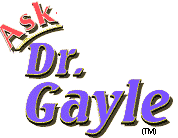
Overscheduled children: Where has childhood gone?QUESTION: My 6 year old daughter runs from one activity to the next. One moment it is soccer practice, then dance lessons and now she has been asked to participate in a local community swim team, which meets three times a week after school! I am worried that she never seems to have time just to relax. Lately, she has been easily frustrated and cries a lot. I feel she needs some "down" time. Should I limit her activities? ANSWER: Unscheduled time during the day is as necessary for our mental and physical health as having a good night's sleep. In fact, children (and adults for that matter!), need some free time, in order for body and mind to achieve healthy balance and regulation. We need unscheduled time to reflect on our needs and act spontaneously to meet them. When children are given opportunity for free play, they learn to regulate themselves through the choices they make. This is an essential part of growing up. Structure is a good thing if not overdone. But if we schedule every minute of their day, with little choice or free play, we rob them of the opportunity to develop self-regulation. The concept of "down time" in this context does not necessarily mean "quiet" time. Instead, it means, "flex" time. Down time should serve to create flexibility, which can allow a child to engage in his of her choice of activities. In this way, children can learn to regulate themselves, gravitating towards physical activity to let off steam, when needed, or restful activities, for recharging their batteries, as appropriate. Determining the amount of unscheduled time for your child is highly individual. Keep in mind that when a child has focused mentally, he or she may need to run, jump, hop and skip as a balance to the mental activity. While, if a child has been quite physically active, he or she may need to read quietly or even nap in order to achieve a healthy balance. Find the right balance for your daughter. You may have to be more proactive in choosing (and limiting!) her activities, if you see she is tiring herself out. Oftentimes, younger children have not yet learned how to regulate themselves. Your daughter may need your help to recognize the need to slow down. If your daughter is in need of rest, but runs herself ragged, falling apart emotionally in the afternoon, you may want to structure a "quiet" time that can be used for any number of activities in the hour after she arrives home from school. Allow your child to choose from a variety of "quiet time" activities, such as reading, watching an educational video or taking a nap. Freedom to choose will encourage your child to reflect (and act) on what she needs most, with your guidance. At different times during the day, pent- up tension may need to be released, or depleted energies, replenished. Free time allows us to tune into our bodies and minds to clarify what we need in order to take care of ourselves. When children learn to tune into their bodies and regulate their own activity, they grow into adults who can make healthy choices. If not, they may be prone to run themselves down, rather than take care of themselves. Sound familiar? It should. Lack of self-soothing and self-regulation is a major culprit to mental and physical health in our society! It is not too soon to teach your child ways to combat societal pressures for over-achievement, which can lead to depression instead of fulfillment. Achieving a healthy balance is, after all, what makes our lives enjoyable!
Gayle Peterson, MSSW, LCSW, PhD is a family therapist specializing
in prenatal and family development. She trains professionals in her
prenatal counseling model and is the author of
An Easier Childbirth,
Birthing Normally
and her latest book,
Making
Healthy Families.
Her articles on family relationships appear
in professional journals and she is an oft-quoted expert in popular
magazines such as Woman's Day, Mothering and Parenting.
.
She also serves on the advisory board for Fit Pregnancy Magazine.
Dr. Gayle Peterson has written family columns for ParentsPlace.com, igrandparents.com, the Bay Area's Parents Press newspaper and the Sierra Foothill's Family Post. She has also hosted a live radio show, "Ask Dr. Gayle" on www.ivillage.com, answering questions on family relationships and parenting. Dr. Peterson has appeared on numerous radio and television interviews including Canadian broadcast as a family and communications expert in the twelve part documentary "Baby's Best Chance". She is former clinical director of the Holistic Health Program at John F. Kennedy University in Northern California and adjunct faculty at the California Institute for Integral Studies in San Francisco. A national public speaker on women's issues and family development, Gayle Peterson practices psychotherapy in Oakland, California and Nevada City, California. She also offers an online certification training program in Prenatal Counseling and Birth Hypnosis. Gayle and is a wife, mother of two adult children and a proud grandmother of three lively boys and one sparkling granddaughter.
Copyright 1996-2003. Gayle Peterson All rights reserved.
|